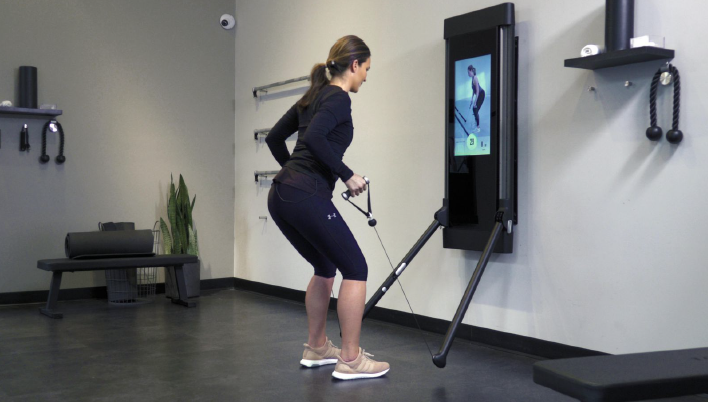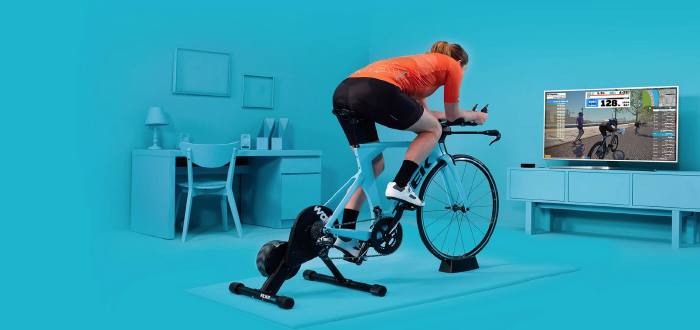
albert Chan
Our Consumer Tech Briefing discusses recent developments in the world of technology. This month we focus on recent developments in the at-home fitness technology industry.
What’s the Story?
As the pandemic stretches on, gym-goers remain cautious about exercising in gyms and studio settings and are seeking new ways to keep up with their fitness regimes, leading to a spike in demand for home workout solutions. In this context, many investors and retailers are eager to get on-board with technologies that help replicate the gym-experience at home.
This report discusses recent funding raised by home fitness technology startups and Lululemon’s introduction of Mirror products in its stores.
Why It Matters
The pandemic dealt a massive blow to the fitness industry. A growing number of fitness chains including 24 Hour Fitness, Flywheel Sports, Gold’s Gym and Town Sports International have filed for Chapter 7 or Chapter 11 bankruptcy in recent months due to the financial strain of the pandemic. The covid-19 pandemic has severely limited the workout options for fitness enthusiasts, who are still wary of returning to potentially high-risk enclosed spaces to avoid virus exposure, paving the way for the growth of the home fitness market.
According to the financial services company Lincoln International, the global digital wellness market was valued at $6.7 billion in 2017 and is projected to reach $27.4 billion in 2022, with a compound annual growth rate (CAGR) of 32.6%. Against this backdrop, many digital startups catering to the fitness market are generating significant interest from retailers and venture capital firms.
Recent Developments in Home Fitness: In Detail
Lululemon Launches Mirror Devices in Stores
Lululemon announced that it is offering products by home fitness startup Mirror at 18 stores in cities across the US from November onwards, including Chicago, Dallas, Los Angeles, Miami, Minneapolis, New York, San Francisco and Washington, D.C.
Owners of the interactive mirror can access a range of workouts from fitness instructors and receive real-time feedback on the screen using the brand’s proprietary algorithms. The company has introduced a range of new tech features for the current festive season: Users can turn on the built-in camera on the interactive mirror to interact with other members, virtually recreating the in-person workout experience. The interactive feature allows users to compete head-to-head against others as part of the “Face-Off” feature, as well as send virtual high-fives to other members during a class and search and follow like-minded friends.
On June 29, 2020, Lululemon announced plans to acquire Mirror for $500 million. The athletics retailer noted that Mirror had seen rapid growth and strong customer engagement since its launch in 2018 as demand for convenient in-home fitness solutions continues to grow. Lululemon’s acquisition of Mirror built on the existing relationship between the two companies, dating back to late 2019 when Lululemon announced its $34 million funding venture in the technology startup.
[caption id="attachment_120537" align="aligncenter" width="500"] Source: Mirror[/caption]
Source: Mirror[/caption]
Digital Home Fitness Startup Tonal Raises $110 Million
On September 19, 2020, AI-driven home workout startup Tonal announced its $110 million funding round, led by existing investors L Catterton, Sapphire Sport, and Shasta Ventures as well as new investors, including Amazon’s Alexa Fund, Delta-V Capital and Mousse Partners. Additional investors include professional golfer Michelle Wie, Paul George of the Los Angeles Clippers basketball team and Stephen Curry of the Golden State Warriors basketball team.
The company reported that it would use the funding to scale its supply chain and logistics in light of unprecedented demand, accelerate its marketing initiatives, and roll out new workout content and software-driven product innovations.
Tonal offers a “connected strength training machine” that can be mounted on a wall for a personalized home workout. The company noted that it experienced explosive growth in 2020, with sales increasing more than 12 times versus last year’s figures. Coupled with a spike in member engagement, this enabled the company to gain a 95% market share in the “connected strength training” segment. The company said that it has opened three new office locations and established a retail presence in 15 new markets across the US. Additionally, Tonal is actively expanding its presence in the hospitality space through new partnerships with Andaz Scottsdale Resort, Waldorf Astoria Boca Raton Resort and Club, and Proper Hotel and Residences.
[caption id="attachment_120536" align="aligncenter" width="550"] Source: Tonal[/caption]
Source: Tonal[/caption]
Zwift Secures $450 Million, Led by Investment Firm KKR
Zwift, an online fitness platform for cyclists and runners, announced that it raised $450 million in a Series C funding round, led by global investment firm KKR and accompanied by other new investors including Amazon’s Alexa Fund, Permira, Specialized Bicycle Components’ venture capital fund and Zone 5 Ventures. The company said that it will use the capital to accelerate the development of the core software platform, expand its registered user base and bring more Zwift-designed hardware to market. Currently, users interact with the platform by pairing an exercise bike or treadmill to the Zwift app.
Zwift provides indoor riding and running workouts immersed in 3D computer-generated worlds. The platform allows its members to take on an in-game avatar and explore 240 miles of terrain across 10 virtual worlds where they can follow structured training plans, enjoy group rides or take part in daily mass participation events.
Zwift has added more than 2.5 million registered users across 190 countries since its launch in 2015, but the company noted that it gained prominence significantly in 2020 as many turned to the platform for home fitness solutions with a social side, as offered by Zwift’s online community.
[caption id="attachment_120535" align="aligncenter" width="500"] Source: Zwift[/caption]
Source: Zwift[/caption]
What We Think
Gym-goers who are still wary of returning to fitness centers are taking advantage of technology-driven home workout solutions. Though the current trend may retreat somewhat once the pandemic eases or ends, the residual effects of a mass digital migration will fundamentally change how the fitness industry operates and will likely dilute the brick-and-mortar fitness industry model in the long term. We believe that digital fitness will continue to be a key part of daily routines and that the digital fitness market will continue to expand well into the post-Covid future.
Implications for Digital Fitness Companies
- To retain new members acquired during the pandemic, digital fitness companies must continue to develop features that recreate the strong social and competitive aspects of traditional in-person workouts.
- Interactive features and enhanced gamification can be powerful motivators for members to increase their engagement levels with digital fitness platforms.